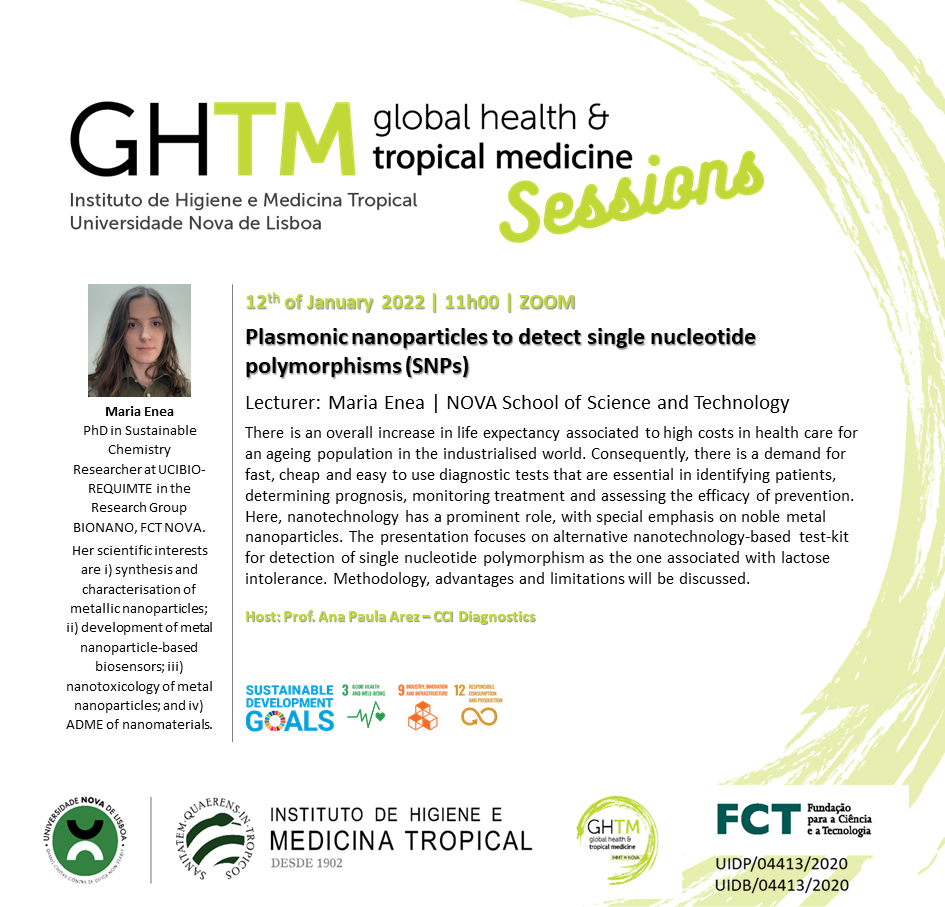There is an overall increase in life expectancy associated to high costs in health care for an ageing population in the industrialised world. Consequently, there is a demand for fast, cheap and easy to use diagnostic tests that are essential in identifying patients, determining prognosis, monitoring treatment and assessing the efficacy of prevention. Here, nanotechnology has a prominent role, with special emphasis on noble metal nanoparticles. The presentation focuses on alternative nanotechnology-based test-kit for detection of single nucleotide polymorphism as the one associated with lactose intolerance. Methodology, advantages and limitations will be discussed.
Ler mais
GHTM Sessions 2022 CCID01 » Plasmonic nanoparticles to detect single nucleotide polymorphisms (SNPs)
- De: 12/01/2022
- Até: 12/01/2022
- Localização: ZOOM | 11h00
